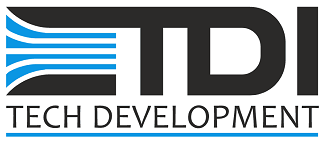While WordPress VIP is a top-tier hosting solution for high-traffic enterprises, its premium cost and strict governance model mean it’s not the right fit for every organization. Its value lies in a “white-glove” service that includes dedicated support, security, and a strict code review process. However, for companies seeking more control, flexibility, or a different pricing model, excellent alternatives have emerged.
The best alternatives can be categorized into three main types, each with its own pros and cons.
1. Managed WordPress Hosting
This approach is the most direct wordpress VIP alternative, offering a similar, hands-off experience. It’s a great choice if you want the power of a dedicated platform without the same price tag or restrictions.
- WP Engine: A pioneer in the managed WordPress space, WP Engine provides a robust platform with strong security and developer tools. It offers a variety of plans and is a popular choice for agencies that need to manage multiple sites. Their Atlas product is a managed headless solution that directly competes with custom builds.
- Kinsta: Known for its user-friendly interface and high-performance infrastructure, Kinsta runs on Google Cloud Platform’s premium network. It includes powerful features like a global CDN and a Web Application Firewall (WAF) through Cloudflare Enterprise on every plan. Kinsta also provides an in-depth Application Performance Monitoring (APM) tool, which helps developers find and fix performance issues quickly.
Is it right for you?
Yes, if you need a fully managed platform with expert support and predictable costs, but don’t require the strict governance and code reviews of WordPress VIP. It’s a great fit for businesses that want to focus on their content and marketing, not on server maintenance.
2. DevOps Platforms
These platforms are designed for organizations with a dedicated development team that values a professional, automated workflow. They provide the tools to streamline development, testing, and deployment.
- Pantheon: Pantheon is a WebOps platform built for professional teams. It offers a Multidev workflow, providing dedicated development, testing, and live environments for every site, which is crucial for secure and efficient deployments. Pantheon’s container-based infrastructure ensures high performance and security by isolating each site. Its powerful command-line interface (CLI) and Git integration make it a developer-friendly choice for managing large portfolios of sites.
Is it right for you?
Yes, if your team has strong DevOps expertise and you need a platform that supports a highly automated, secure, and scalable development workflow. Pantheon is especially well-suited for digital agencies or universities that manage a large number of sites.
3. Headless WordPress
For companies that prioritize raw speed and security, decoupling the frontend from the WordPress backend is a powerful strategy. In a headless setup, WordPress is only used as the content management system (CMS), while a modern JavaScript framework handles the front end.
- Superior Performance: The frontend can be pre-rendered as static files, resulting in incredibly fast load times and a better user experience.
- Enhanced Security: By separating the public-facing site from the WordPress backend, the attack surface is significantly reduced, making it much more difficult for hackers to exploit vulnerabilities.
- Developer Flexibility: Developers are free to use modern technologies and frameworks without being tied to a traditional WordPress theme.
Is it right for you?
Yes, if your team is comfortable with modern JavaScript frameworks and you are building a site where performance and security are the absolute top priorities. This approach requires more initial development effort but offers unparalleled speed and a more future-proof architecture. Hosts like Vercel and Netlify are ideal for a headless setup.





